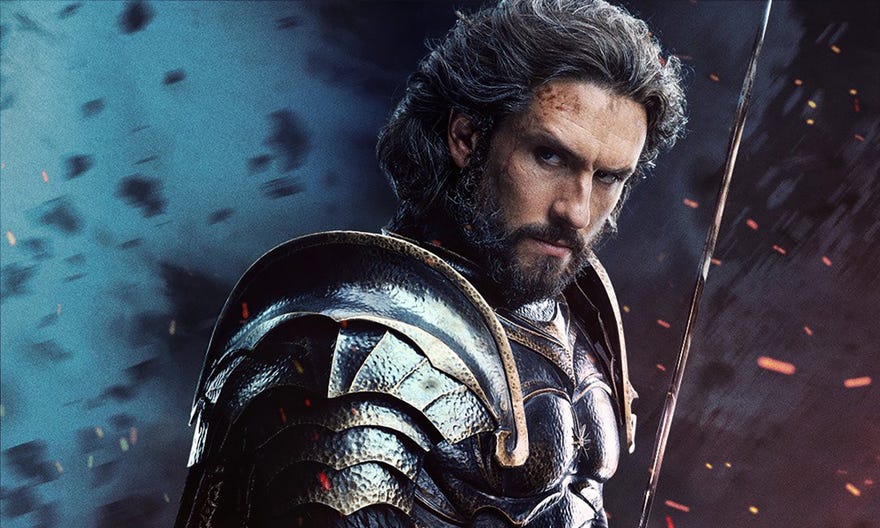The Witcher: Inside the Netflix show's mysterious White Flame
The White Flame, aka Duny, aka Emhyr van Emreis, Emperor of Nilfgaard: Breaking down The Witcher's most mysterious character.
In the pilot episode of Netflix's hit show The Witcher (based on the books by Andrzej Sapkowski), the kingdom of Cintra is unexpectedly overwhelmed by the army of a southern kingdom known as Nilfgaard. They prove to be brutal in the extreme, wiping out everyone they encounter. And their leader, we discover over the course of season one, is a mysterious messianic figure known as 'The White Flame' who is obsessed with ruling over the entire continent and capturing Ciri.
At the end of season two, we finally meet this figure in person, and in the first half of The Witcher season three we finally get to spend time with him. And what we discover is that the White Flame is both much more familiar and somehow also much more mysterious than we had initially realized.
Spoilers ahead for The Witcher season 3 volume 1.
Where the White Flame caught his fire
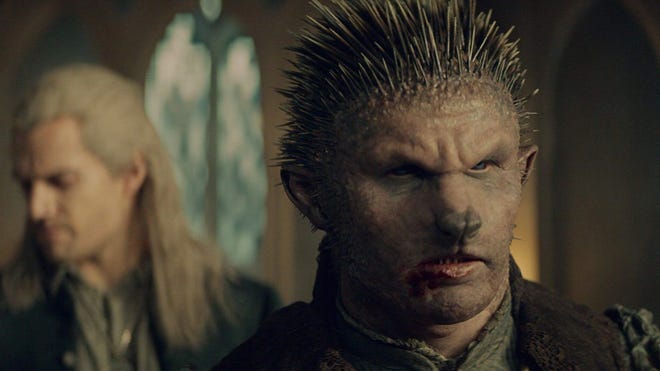
In the fourth episode of the first season of the Witcher, during events which take place over a dozen years before the invasion of Cintra, Geralt of Rivia grudgingly agrees to accompany Jaskier to the betrothal feast of Cintra’s Princess Pavetta, daughter of the widowed Queen Calanthe. And as various suitors make their cases for marrying her, a strange masked knight named Urcheon of Erlenwald, also known as Duny, arrives and claims he has the right to Pavetta’s hand.
As it turns out, before Pavetta was born, Duny saved her father Roegner’s life. As payment he claimed the Law of Surprise; whatever unexpected windfall the king came home to discover would be Duny’s. As it turns out, Roegner returned home to discover his wife Queen Calanthe was pregnant. Therefore, Duny argues, Pavetta’s hand is his by right.
The situation becomes more complicated when Duny’s helmet is removed, revealing a hedgehog-like appearance. Since childhood Duny has lived under a curse that transforms him into this each day until midnight. Calanthe immediately orders him slain, but he proves more than able to protect himself, defeating nearly a dozen opponents before Geralt steps in to stand with him. When Calanthe orders what has become an all-out melee to cease, Pavetta reveals that she and Duny have been in contact for quite some time and are in love. Calanthe still tries to assassinate Duny. But as her knife approaches Duny’s throat, Pavetta suddenly unleashes a telekinetic storm that threatens to destroy the entire throne room. It’s only through Geralt’s efforts that catastrophe is averted.
Finally relenting, Calanthe marries Pavetta to Duny. When they kiss, he unexpectedly transforms back into a man, his curse finally ended. In thanks, Duny insists that Geralt take a reward. Geralt claims the Law of Surprise, telling Calanthe whatever the surprise, he will not be coming back to claim it. He doesn’t believe in destiny. At that moment, Pavetta has her first bout of morning sickness. She’s pregnant, which Duny did not know.
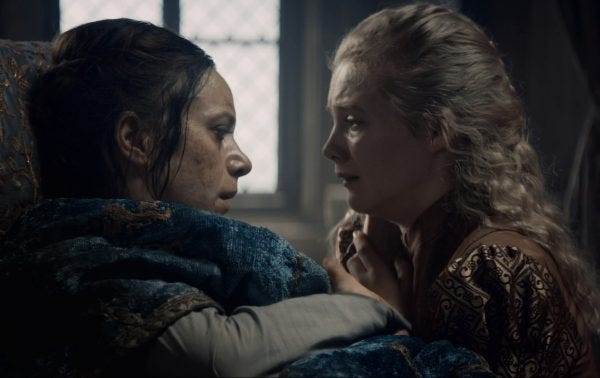
More than a dozen years later, Ciri is being raised by Calanthe, after Duny and Pavetta are said to have died in a shipwreck many years earlier. With Nilfgaard is on the verge of storming Cintra’s castle, Calanthe sends Ciri out to find Geralt of Rivia, saying he is indeed her destiny.
The Witcher season one: The White Flame of Nilfgaard
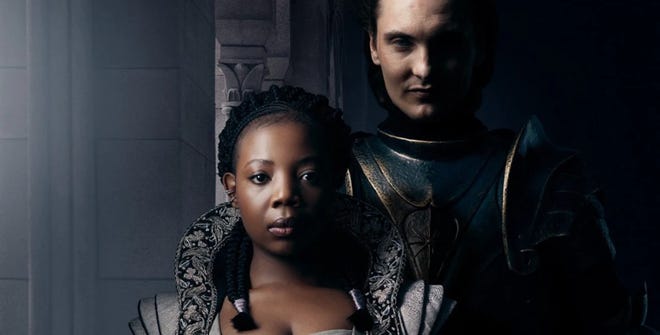
During the course of season one we also learn a number of things about Nilfgaard and its leader. At Pavetta’s betrothal dinner Queen Calanthe ridicules a Nilfgaardian suitor, saying his kingdom is “the shitrag of the South” whose kings never last long. She also notes a “Usurper” who now sits on the throne, though their identity goes unnamed.
But by the time Pavetta’s daughter Ciri is a teenager, Nilfgaard has become a potent and focused fighting force known for taking no prisoners, indeed for torturing and killing both their opponents and innocents in the most heinous of fashions. And their leader is called the White Flame.
In episode 105, the sorceress Fringilla Vigo, who was assigned to be mage to Nilfgaard many years earlier, speaks of her experience of this figure in almost religious terms. “The White Flame made me who I am,” she says. “He gave me a higher purpose.” In the next episode she does so again. “I witnessed the White Flame call on you,” she tells Cahir, the black knight hunting Ciri down for the White Flame, “mold you, anoint you” in their quest to overcome the Usurper, who she says had their people “in chains.”
Fringilla also describes the White Flame’s plan to take over the kingdoms of the North as a kind of gift. “We will spread his supremacy all through the kingdoms whether they deserve it or not.” Ciri is somehow key to this plan, and Fringilla and Cahir both will put capturing her even above succeeding in conquest.
At the end of the season, Yennefer and other members of the Conclave of Mages defeated Nilfgaard at Sodden Hill Keep, preventing them from invading more of the North.
The Witcher season two: Emhyr van Emreis comes
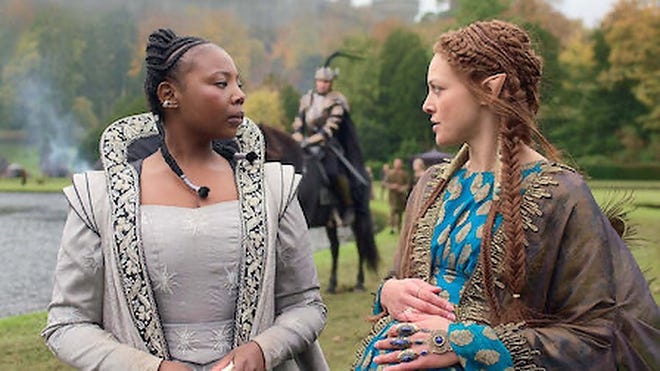
During the second season we learn more of the White Flame, who is now also identified as Emhyr var Emreis, Emperor of Nilfgaard. Fringilla explains midway through the season that he and his mission are completely misunderstood. “People look upon our black armor and assume we are here to destroy the world,” she says in 203. “But we are not. We are trying to feed, to house, to liberate.”
She and Cahir also reveal the seed of their own dedication to him. in the era of the Usurper, Fringilla and all of the mages in Nilfgaard were jailed in a horrifying place she describes as a “playhouse.” She spent years languishing in prison, in fact, until Emhyr set her free. “Fringilla and I serve Emhyr because he served us first,” Cahir says in 204.
Having failed to seize Ciri and their troops for the moment in tatters, Fringilla is anxious to have something else to offer Emhyr. She forges an alliance with the Elves of Francesca Findabair, allowing them to seek refuge in Cintra in exchange for their help in fighting for the White Flame.
But Fringilla’s plans quickly go awry. The birth of Francesca and Filavandrel’s daughter — the first pure-blood Elf born in many years — gives the Elves a renewed hope for their future. Cahir fears this makes them potentially less reliable as allies of the White Flame. He also reveals that Emhyr is on his way to Cintra.
In the days that follow, someone murders Francesca’s baby and pins the crime on the Redanians. Outraged, Francesca commits her forces to warring on Redania. When the White Flame arrives, Cahir and Fringilla claim to have killed the child, only to discover that in fact it was Emhyr himself who commissioned the act, seeing it as the best path to find his daughter. And as Cahir and Fringilla are arrested and taken away, Emhyr turns to reveal that he is none other than Duny.
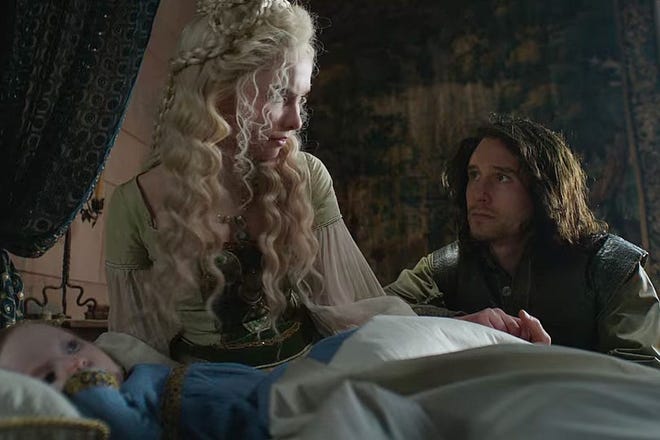
Meanwhile, in a vision of the past in episode 205, Ciri watches her parents argue in their bedchambers on the day before their ill-fated journey. Duny is insistent that they must sail from Cintra immediately, lest people come to hear of a prophesy about Ciri, which he believes will make them want to murder her. They agree to leave the next day.
The Witcher season three, volume One: The Emperor rules
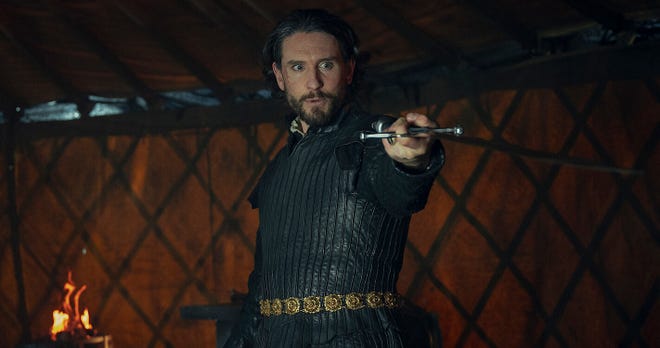
Over the course of the first five episodes of season three, Emhyr demonstrates exactly the kind of leader he is. In 303, Cahir brings to court his old friend Gallatin, an Elven leader in the roving warrior cells of Elves known as the Scoia’tael. Gallatin warns the Emperor that Francesca is more obsessed with finding this girl Ciri than fulfilling the Emperor’s mission of conquest. While appearing to take these concerns seriously, in private the Emperor orders Cahir to kill his friend as an expression of his loyalty. Cahir does the deed, but it shatters him.
The Emperor then orders Cahir to take forces to Francesca and work with her people on a secret plan which he believes will allow Nilfgaard to take over the North and bring Ciri to his side.
In season three we also watch Emhyr take time to reflect on his history. He burns all the old portraits of him and his family with the exception of one of Ciri as a baby, erasing any trace of his life as Duny. In 302 he also shares with a smith how he came to defeat the Usurper. He was down to his last men, he says, and they were starving. He infiltrated the castle by himself, and slayed the Usurper using a special Mahakaman steel sword.
“One day war will be a thing of the past,” he tells the smith. “It will be a distant memory. I will have my queen by my side and the races of the world, they will live in peace.” And he will have this smith forge him a new Mahakaman steel sword, befitting his role as “Emperor of the continent.”
The Witcher: Questions that remain about the White Flame
For as much information as we now have about the White Flame, there are still many questions. For instance, who were Duny’s parents? Did they rule Nilfgaard before the Usurper? What happened to them, and who exactly was the Usurper anyway?
Also, why was Emhyr cursed as a child? What did he do? How did he survive in Nilfgaard for all those years with this curse upon him?
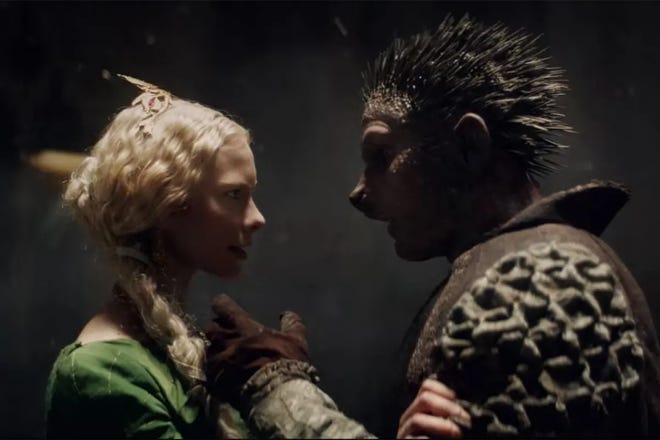
How did he end up meeting Pavetta’s father? Was it in fact strictly coincidence or did he have some hand in the threat to Roegner’s life so as to be able to call upon the Law of Surprise and claim Pavetta as his own?
What was the prophesy that Pavetta told Emhyr about Ciri that made him insist that they flee? How did Pavetta come to hear about it? And what is the deal with the shipwreck? Did it really happen? Was it intentional on Duny’s part? Or did something go wrong? Is there any chance Pavetta is actually still alive?
How did Duny get from that moment to becoming Emperor of Nilfgaard? And is he today simply a violent, imperialist tyrant, as he seems, or is there something to his insistence that he intends good for the entire continent?
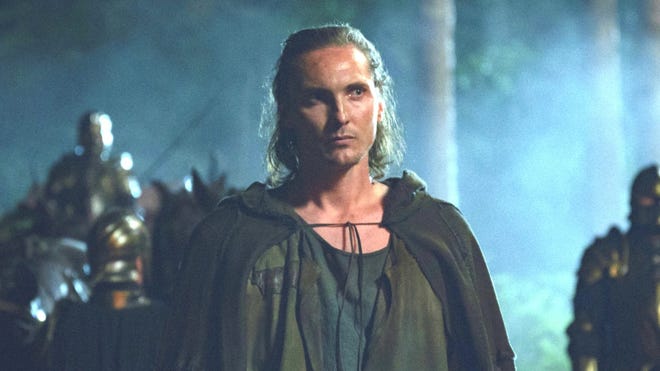
If he doesn’t, why do his followers, too, believe this? What is about him that gives them all such ardent zeal for his cause?
And finally, what does he intend for his daughter Ciri? Is he simply a father yearning for reunion, or does he intend to use her in some way?
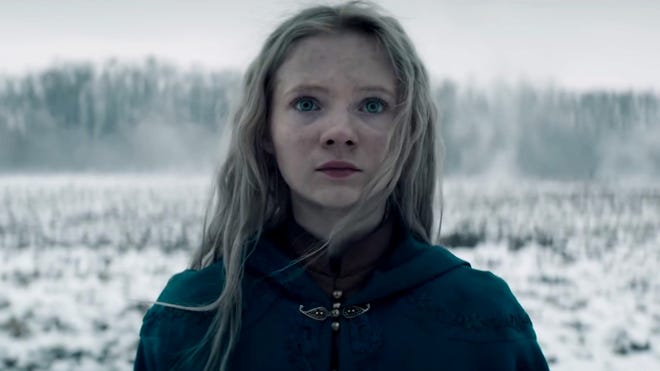
Put simply, there is much about the White Flame that we still don’t know. Perhaps some of the answers will be forthcoming in the second half of season three, which airs July 27 on Netflix.
The Witcher: How to watch Netflix's hit sword and sorcery show in release and chronological order.

